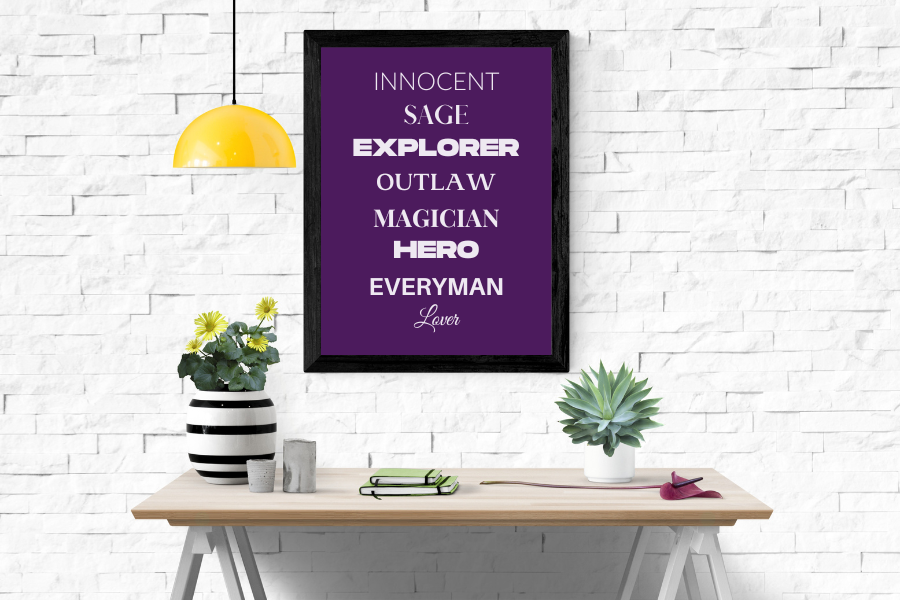It’s noisy out there. With so many brands competing for attention, how do you make yours the one people remember? The secret isn’t just about being different—it’s about being strategically different in a way that resonates with your audience. Here’s how to make your brand impossible to ignore.
Define What Makes You Unique
If you don’t know why people should choose you over the competition, neither will they. Your Unique Value Proposition (UVP) is the core of what makes your brand stand out.
✔ Know your strengths. What do you do better than anyone else?
✔ Understand your audience. What problems do they need solved?
✔ Study your competitors. Where do they fall short, and how can you fill that gap?
When you can clearly articulate why your brand is unique, you create a compelling reason for customers to choose you.
Build a Strong, Recognizable Brand Identity
A memorable brand isn’t just about a great product—it’s about creating an experience that people instantly recognize and trust.
✔ Visual consistency. Use a signature color palette, logo, and typography across all platforms.
✔ Consistent messaging. Speak in a way that reflects your brand’s personality and values.
✔ Customer experience. Ensure every interaction—from your website to social media—feels cohesive and intentional.
A well-crafted brand identity helps people recognize, remember, and trust your business.
Create an Emotional Connection
People don’t just buy products—they buy into brands that make them feel something. Whether it’s excitement, belonging, or security, brands that spark emotion build stronger relationships with their audience.
✔ Tell your story. Share your brand’s journey, mission, and the ‘why’ behind what you do.
✔ Be relatable. Speak to your audience like a human, not a corporation.
✔ Solve real problems. Show that you genuinely understand and care about your customers’ needs.
When customers connect with your brand emotionally, they’re more likely to stay loyal and become brand advocates.
Stay Fresh & Relevant
The best brands aren’t just consistent—they’re adaptable. Staying relevant means evolving with your audience while staying true to your core identity.
✔ Keep an eye on trends. Adapt to shifts in the industry and consumer behavior.
✔ Listen to feedback. Your customers will tell you what’s working (and what’s not).
✔ Refresh, don’t reinvent. Small updates to your visuals, messaging, or offerings can keep things fresh without confusing loyal customers.
Brands that grow and adapt strategically stay ahead of the competition without losing their identity.
Deliver Real Value
At the end of the day, what keeps people coming back? Value. The best branding in the world won’t save a business if it doesn’t deliver.
✔ Offer quality. Whether it’s a product, service, or content, make sure it exceeds expectations.
✔ Go beyond the sale. Provide support, education, and community to build long-term trust.
✔ Be easy to work with. A seamless customer experience will always set you apart.
Make Your Brand Impossible to Ignore
Standing out doesn’t mean being loud—it means being clear, consistent, and customer-focused. Define what makes you unique, build a strong identity, and create experiences that people want to return to.
Not sure how to refine your brand strategy? Let’s talk. Schedule a free strategy call, and let’s make your brand unforgettable.
Filed Under: Blog, Branding Tagged With: Branding, Marketing
The First Step to a Thriving Private Practice: Why You Need a Business Plan
Creating a business plan might feel like extra work, but it is worth the effort! 1. Clarity...
What’s Your Brand’s Personality? Understanding the 12 Brand Archetypes
Quick Summary: Brand archetypes give your business a distinct personality that helps attract...
The Art of Brand Customer Attraction: How to Draw Your Ideal Audience
Have you ever wondered what makes customers truly connect with a brand? It’s not just about...




